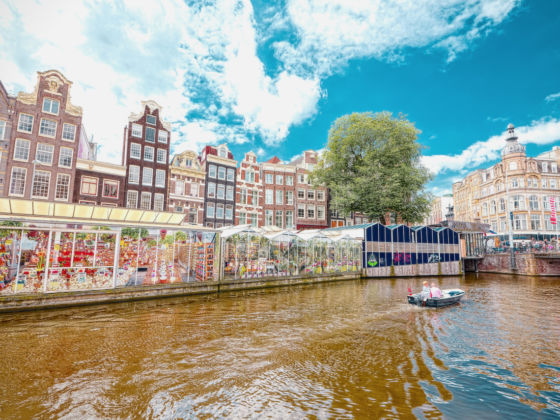Amsterdam’s floating flower market, the Bloemenmarkt, is comprised of flower shops located inside a row of floating barges. Or, at least, it used to. The tradition that dates back to the days when flowers arrived into the city from the countryside by way of the canals is going the way of dinosaurs, and apparently it’s thanks to overtourism.
The last floating florist at the Bloemenmarkt, Michael Saarlos, will be the last of his family to be selling flowers on the Singel canal — something they have been doing since 1943. According to him, crowds of camera-toting visitors have been blocking out serious customers, and cheap tourist-focused stalls selling magnets, clogs, and plastic tulips have been replacing the flowers shops.
